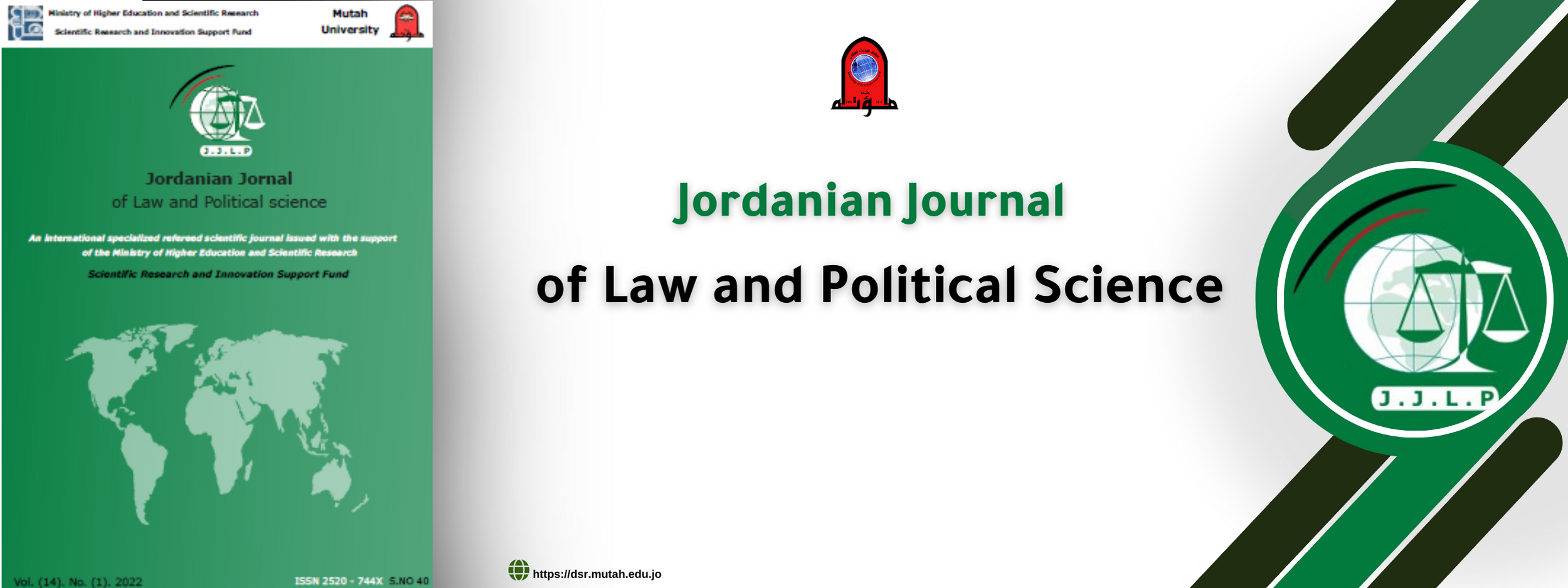International Liability Resulting From Operations Related To Harmful Waste
DOI:
https://doi.org/10.35682/jjlps.v14i3.457Keywords:
international responsibility, hazardous waste, harmful consequences, Basel ConventionAbstract
Public international law has arranged international responsibility in the event of a violation of its provisions and rules, if it results in the infliction of harm due to illegal behavior by one of its persons. Even if the behavior itself is legitimate, it is described as dangerous in itself and is likely to cause harm to other countries.
The general rules of international responsibility apply to the disposal of harmful waste, regardless of the methods of disposal, such as unsafe burial or disposal in water, and non-observance of international standards regulating this matter, provided that damage is caused to another country.
The Basel Convention in 1989 addressed the problem of the disposal of hazardous waste, but it was unable to reach a complete ban on the transfer of hazardous waste, as it came with an international organization to monitor the movement of hazardous waste across international borders, which made the agreement a mere cover to give legal legitimacy to the trade The transfer of hazardous wastes between the member states of the agreement, and this contradicts the objective for which the agreement was concluded, which is to protect developing countries from environmental damage resulting from the transport of hazardous wastes to their territories.
Through this study, a light was shed on the definition of hazardous waste, its types and damages, and how to transport and dispose of it across international borders, in accordance with the provisions of the Basel Convention, with a review of the mechanisms for implementing the provisions of this Convention, as well as the international responsibility for the transport and storage of hazardous waste, and the legal basis for this responsibility. , and its legal implications, and in the end the researcher reached a set of results, the most important of which are: that there is a fundamental obligation on the shoulders of states, whether they are party to the Basel Convention or not, to the necessity of disposing of hazardous waste in a safe manner, and subjecting it to a special system that prevents its damage, Otherwise, you will bear the international responsibility for these damages, The researcher also reached a set of recommendations, the most important of which are: the necessity of providing for the criminalization of the act of exporting hazardous waste in a complete way, based on the obvious shortcomings in the Basel Convention of 1989 AD, which allows the transfer of hazardous waste between the party states, despite the fact that the agreement includes conditions that must be observed so that the export can be However, these conditions would open the door to the illegal transfer of hazardous wastes through fraud, in return for the profits that countries derive.







